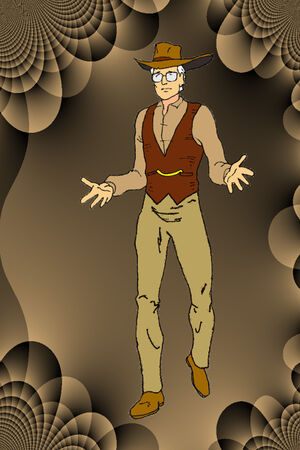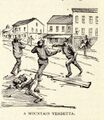John Havelock: Difference between revisions
| Line 37: | Line 37: | ||
<gallery> | <gallery> | ||
File:Havelock_and_Tesla_telecommunications_research.jpg|link=Havelock and Tesla Research Telecommunication|Havelock and [[Nikola Tesla (nonfiction)|Nikola Tesla]] share Nobel Prize in Physics for [[Havelock and Tesla Research Telecommunication|research into electrical field modulation and data transmission]]. | File:Havelock_and_Tesla_telecommunications_research.jpg|link=Havelock and Tesla Research Telecommunication|Havelock and [[Nikola Tesla (nonfiction)|Nikola Tesla]] share Nobel Prize in Physics for [[Havelock and Tesla Research Telecommunication|research into electrical field modulation and data transmission]]. | ||
File:Nikolai Tesla 1896.jpg|link=Nikola Tesla (nonfiction)|Electrical engineer [[Nikola Tesla (nonfiction)|Nikola Tesla]] invites Havelock to collaborate on electric transmission project. | |||
File:Mountain vendetta.jpg|Mountain vendetta. The prone figure in the foreground is Havelock, the only person is this picture who survived the event. | File:Mountain vendetta.jpg|Mountain vendetta. The prone figure in the foreground is Havelock, the only person is this picture who survived the event. | ||
</gallery> | </gallery> | ||
Revision as of 18:36, 3 March 2017
Havelock (? - ?) is a retired superhero with the power of settling Fate-related disputes between two other parties.
These two others will make a mutual pact which will result in one of their Fates (or "dreams") coming true, and the other dream coming to nothing.
The pact requires them to make Havelock "decide" which dream "lives", and which dream "dies".
Havelock has always sworn that he does not decide or choose which dream or destiny lives. In a recent interview he said:
These fools come to me, two by two, and they want action right now. They've got their beefs all heated up, and they want me to pick one right now.
I try to explain why it's a bad idea, and every so often I can talk 'em out of it.
But most of the time I have go ahead and do it, because it's better than getting shot or stabbed in the leg, which is usually what they do if I refuse.
So I do my thing. I accept the situation. I let it happen. That's the only decision: I decide to let it happen.
Then I usually get a little bit hazy, nod off for a second or two. But not long, it's quick. And then it's done.
The problem is, most of the time, everything is the same. There is no sign whatever that anything happened, that anything has changed.
Sometimes it happens immediately. One guy kills the other guy on the spot, or the loser drops dead of a heart attack. I remember these two guys, they both immediately got phone calls from their attorneys about a helicopter crash with no survivors.
But usually it takes days, weeks for the effects to kick in. Months. There are no in-your-face miracles here, okay? The heavens do not open up and shower down gold, that doesn't happen. If the winner wants gold, well, Fate will get the gold to him, in its own bittersweet time.
And they don't like waiting, these guys. They dislike it a lot.
They've been business rivals, enemy warlords, dogs fighting over a bone for so long, they live for nothing but denying the other guy his dreams. Nothing. They are obsessed, and they won't be be put off. They want to know whose dream will come true, and they want to know now.
And I can't tell them a damned thing. I have no idea. I threw their dice, that's all. Fate called the winner.
I ain't Fate, man. [Laughs]. I'm a pawn like everyone else.
He is sometimes referred to as "The man who doesn't get killed," because all of the many attempts on his life have miscarried and failed.
In the News
Havelock and Nikola Tesla share Nobel Prize in Physics for research into electrical field modulation and data transmission.
Electrical engineer Nikola Tesla invites Havelock to collaborate on electric transmission project.



